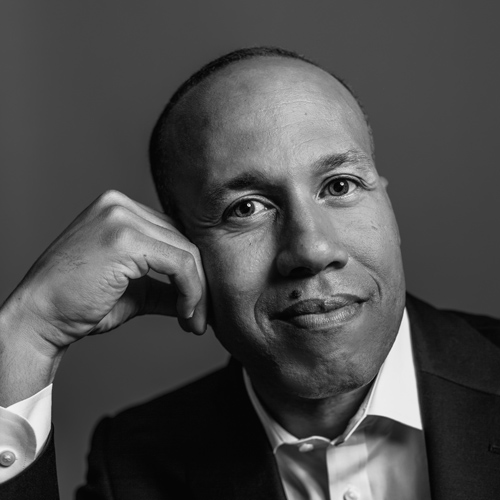Comcast Corporation’s Marc Rockford is no stranger to the world of M&A. After all, he did play an integral role in Comcast’s acquisition of NBCUniversal in 2011, resulting in the former owning 51 percent of the latter. Then, there was the company’s purchase of General Electric’s remaining common equity stake in 2013.
But even with that experience, he says that Comcast SportsNet Mid-Atlantic’s (CSN Mid-Atlantic) recent advanced media partnership with Ted Leonsis’s Monumental Sports & Entertainment (MSE) is something unique. It’s not just that MSE owns a litany of sports teams in the Washington, DC/Baltimore area (including the NHL’s Washington Capitals and the NBA’s Washington Wizards)—it also owns the Monumental Sports Network (MSN), an all-digital, online sports network. So, in addition to an extension of the exclusive media rights license for the Capitals and the Wizards being granted to CSN Mid-Atlantic, Comcast became an owner in MSN.
Despite the complexity of the deal, Rockford’s former coworker, Thomas Reid, managing partner of Davis Polk, attests to his considerable skills in the M&A field.
“Marc is of course a supremely able M&A lawyer, but that does not nearly do justice to his skill set,” Reid says. “He is a very broad-gauge lawyer and trusted general counsel advisor to his colleagues. As outside counsel, working with Marc is always a pleasure as he frames the context for our work and our advice, so time is never wasted.”
What was so unique about this deal?
While the Wizards and the Capitals are on NBCUniversal’s CSN Mid-Atlantic and MSE was interested in owning our network, they had, at the same time, been developing the Monumental Sports Network, which is more of a complementary, digital network. It’s not on television. It’s digital-based, and it carries Arena Football League games and related content. MSE also owns the Washington Valor, the Washington Mystics, and presents minor league hockey games on MSN.
They were doing more things to get deeper integration with their fan base. So, for example, if you’re a season ticket holder of the Caps or the Wizards, you can get certain premium content on Monumental, as well as background information on the teams. That then helps drive viewership at our main video networks, so there’s a lot of synergy there. What was ultimately decided was that, in addition to their taking an interest in our network, we would make more of a venture capital-style investment into MSN.
So it’s not just unique for Comcast—it’s a unique type of deal altogether, given that a supplemental, digital sports network is still a relatively new concept.
That was one of the things that we liked about it. We’re always looking for innovative ways to connect with the sports fans through NBC Sports, so this was a unique opportunity for us. The piece of it that was most interesting from my perspective as a transactional lawyer is the fact that, while we were issuing MSE a minority interest in our network, MSN ended up issuing us a minority interest in their network. So we were different sides of the same issue in the same transaction. Usually, you’re on one side or the other. In a joint venture, you’re either on the majority owner’s side or the minority owner’s side. You’re negotiating the liquidity rights for the minority, the detail governance rights for the minority, or you’re on the majority side of that.
Here, we were really on both sides because of the transaction, so it was really interesting to have to jump back and forth between the two perspectives and try to find outcomes that would work for both networks. That way, everyone had some symmetry in their minority rights. For me, it was a really interesting exercise.
Was there anything that was especially challenging about the deal from your perspective as a transactional lawyer?
Yes, I think being on both sides provided some unique twists and turns. On one hand, it’s this idea of trying to figure out how to justify positions as a majority owner. On the other hand, you’re going to have to live with that position as the minority and thread that needle to think a little bit outside of the box on things such as governance and liquidity rights. Normally, you’re in a straight-up joint venture where you’re either the majority or the minority partner.
How much of the workload was handled by you and how much was handled by others? Did you have to involve any outside counsel?
I had a more junior in-house person who was new to the company shadow me on the deal more as a learning exercise, but we used Davis Polk, which is our regular strategic M&A outside counsel. I worked with a partner who has done a lot of work for us, particularly in the regional sports network area.
Then, we also had tax lawyers and intellectual property lawyers working on the rights deal. We also had lawyers at NBC within the sports group that actually do the legal work for our regional sports network business, working on various commercial aspects of it.
As far as my role, Davis Polk did the initial drafting, but obviously, I reviewed it and led all the negotiations on the corporate side with the people from MSE, who, by the way, were really great partners. We had a common goal here and we were able to work well together. They had outside counsel as well, but it obviously helps when you’re all rowing in the same direction.
Was there a moment where you realized everything was done and the deal was moving full-steam ahead? Or do you never assume something like this until it’s over?
Every deal has its fits and starts. There are always times when you get a big issue and you stop and think, “How are we going to resolve this?” But at some point, you pick up enough momentum that, if you have a really fundamental unforeseen issue, the parties are going to find a way to be creative and to solve it. Once a deal gets to that critical mass stage, there are very few obstacles that are insurmountable.
You’ve mentioned how both your role at Comcast and the legal department as a whole have evolved. Could you speak a little more to that?
When I came to the company in 2003, it was just seven months after we had acquired AT&T Broadband, which nearly tripled the size of Comcast Cable’s subscribers. We only had two full-time transactional lawyers and it was not really integrated into a transactional group like it is now. I now have six full-time M&A lawyers that report to me, some of whom are specifically dedicated to Comcast Ventures, which is our venture capital arm. While I still work on larger transactions, I also now manage a department that handles a significant deal flow, and as a result, we have developed standard forms, transaction procedures, and internal reporting processes.
The legal department has become much more specialized. We have a full compliance team now. We have more intellectual property lawyers in the company. When I first started here, I was probably working more with outside counsel for the specialty expertise, and I was sort of doing it all from the in-house side. Now, it’s more likely the case that I’m working side by side with my in-house colleagues on things like compliance diligence, intellectual property and commercial matters, and regulatory issues.
How do you see your department continuing to grow and change? As a result of the new partnership, will it continue to expand, or will everything level out for a little while?
We’ve always been a very transaction-oriented company. Since the NBC acquisition, we now do transactions in an ever-increasing number of industries and markets. When I first came here, it was a domestic cable company with very small international exposure. Now, we literally do deals all over the globe, and they are all done out of my group here in Philadelphia. We also handle smaller matters as well—acquiring intellectual property, investing in small technology companies … it really runs the gamut.
Because so many of these deals are related to different sports teams, do you feel like you’re still able to root for your favorite team, or are you obligated to support someone owned by CSN Mid-Atlantic?
No, I certainly have my personal favorite sports teams, and I get in trouble for that [laughs]. When I can, I root for the teams that are on Comcast SportsNet of course because that’s good for us, and it’s good for them. But I’m from Rochester, New York, originally, so I’m a Buffalo Bills fan. That’s not always such a great thing to be, but that is what I am.
I do root for the Philadelphia sports teams. We have the Phillies on our network. We have the Flyers. We have the Sixers. My kids have grown up Philly sports fans, so I certainly root for the Philly teams as well.
You have obviously handled a lot of different types of deals at Comcast. Do you have a dream project or project type that you have yet to work on?
I know it sounds like a cliché, but I have fulfilled a lot of dreams here at Comcast. I don’t know that I have any one particular unfulfilled dream, but one thing that I really have enjoyed is the international work. So my ideal project would involve multiple foreign jurisdictions.

